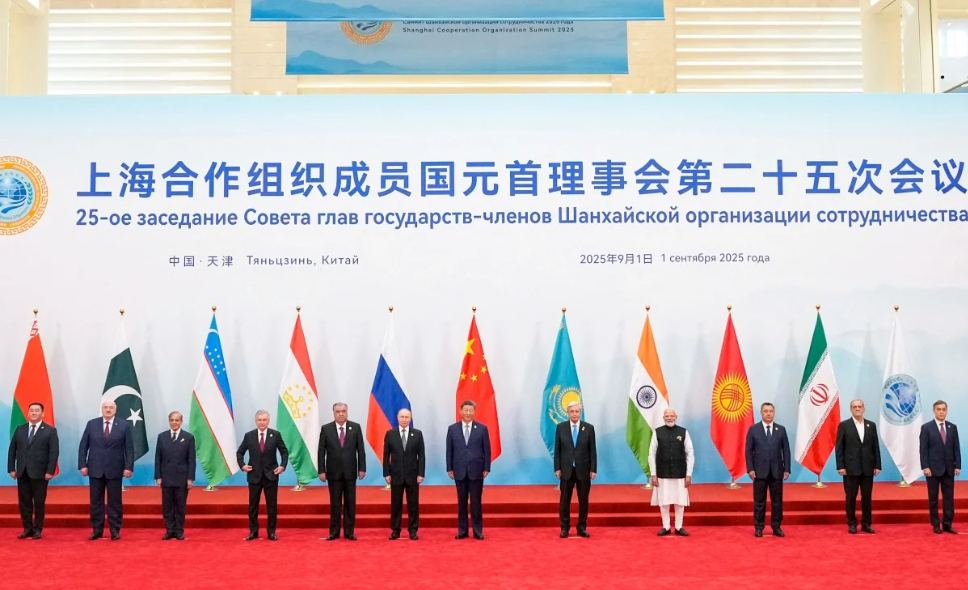SCO summit slams terrorism, but for India, tensions with Pakistan remain
The Shanghai Co-operation Organisation condemns last April’s attack in Kashmir that sparked border fighting between India and Pakistan, but also terrorist attacks in Balochistan, which Islamabad blames on New Delhi. Modi, unlike his Pakistani counterpart Shahbaz Sharif, avoided expressing support for the Belt and Road Initiative. For China, despite tensions in South Asia, multilateralism remains the best option for building an anti-US bloc.
Tianjin (AsiaNews) – Despite the image of unity that the Shanghai Co-operation Organisation (SCO) member states have sought to project abroad by presenting themselves as a united anti-Western bloc, relations between India and Pakistan remain a sticking point for China, which has staked a lot on this summit.
In its final statement, the SCO strongly condemned terrorism in all its forms and manifestations, citing both the Pahalgam attack on 22 April and the attacks carried out in Balochistan between March and May of this year, the first against the Jaffar Express train, the second in the city of Khuzdar.
This is a partial victory for Indian Prime Minister Narendra Modi, who accuses Pakistan of being directly responsible for the attack in Kashmir that killed 26 people, mostly Indian tourists.
In June of this year, India refused to sign the joint statement at the end of the SCO defence ministers summit in Qingdao, China, thus preventing its publication.
Indian Minister Rajnath Singh explained that the decision was due to the text's lack of a clear and shared position against cross-border terrorism, particularly that supported by Pakistan.
Similarly, Islamabad has long accused New Delhi of financing and supporting independence movements that carry out attacks in Pakistan, particularly in Balochistan province.
Pakistan's Prime Minister, Shahbaz Sharif, reiterated in his address that he had “irrefutable evidence of involvement of some foreign hands” in the recent attacks in Pakistan.
In May, tensions between the two South Asian countries escalated into open warfare, which ended following US intervention, despite Modi's repeated statements that there had been no third-party intervention.
The ceasefire was reportedly reached directly between the Indian and Pakistani armed forces, at Pakistan's request. Modi and Indian officials have stuck to this position on several occasions, including in response to US President Donald Trump's claims that he played a decisive role in mediating peace between the two countries.
Modi insisted that India does not and will never accept third-party mediation in its relations with Pakistan.
The subsequent imposition of 50 per cent tariffs on Indian exports has pushed New Delhi to seek rapprochement with Beijing and attend the SCO summit, despite China's continued support for its ally Pakistan,
Since joining in 2017 along with Pakistan, India has been a source of frustration for China, repeatedly described by Chinese experts as an "internal cancer" for its opposition to Chinese initiatives.
At the same time, however, it is precisely in multilateral contexts that China hopes to build an anti-US bloc.
SCO’s 10 member states, which include Belarus, Iran, Kazakhstan, Kyrgyzstan, Tajikistan, Uzbekistan, and Russia, have also called for an end to "cross-border movements" by terrorist and separatist groups, condemning their use for "mercenary purposes."
The frosty atmosphere between Indian Prime Minister Modi and Pakistani Prime Minister Sharif, who have avoided any type of interaction, has not gone unnoticed.
Sharif, as reported by Pakistan’s English-language newspaper Dawn, did not fail to launch a not-so-veiled jab at India for suspending the Indus Waters Treaty and carrying out missile attacks in May.
“Pakistan has always believed in the power of multilateralism, dialogue and diplomacy, and shunning unilateralism. And yet, to our shock and deep disappointment, the region witnessed extremely disturbing developments during the last few months,” Sharif said. “Pakistan supports and respects the sovereignty and integrity of all SCO members and its neighbours,” he added.
The final joint statement focuses on strengthening the Global South at a time when diplomatic and trade relations are characterised by a "chaotic and intertwine global situation." it goes on to say that member states “oppose unilateral coercive measures, including those of an economic nature”, a likely reference to US tariffs.
Chinese President Xi Jinping, who chaired the meeting of member heads of state, criticised “bullying behavior” in the global order in his opening remarks and called on leaders to “adhere to fairness and justice” while opposing a “Cold War mentality”.
India joined the other member states in condemning Israel's war on Gaza and the Israeli-US military attacks on Iran, but unlike other members, it did not reiterate its support for the Belt and Road Initiative, China’s mega infrastructure project designed to connect China to the rest of the world.
In his opening speech, Chinese President Xi Jinping promised to provide 2 billion yuan (about US$ 280 million) in grants to member states this year and another 10 billion yuan ((US$ 1.4 billion) in loans to SCO Interbank Consortium member banks over the next three years, also stressing the need to establish an intra-SCO development bank “as soon as possible.”
Pakistan, for its part, praised China for its regional economic co-operation initiatives. “For us, the SCO is a platform that best represents Pakistan’s abiding commitment to regional co-operation and integration,” said Sharif. “China’s successful tenure as chair of the SCO is reflective of President Xi’s sagacious and visionary leadership.”
The Pakistani leader also stressed China’s “global leadership” not only through the bloc but also in its landmark initiatives, such as the Belt and Road Initiative and the China-Pakistan Economic Corridor (CPEC).
24/05/2012







.png)










